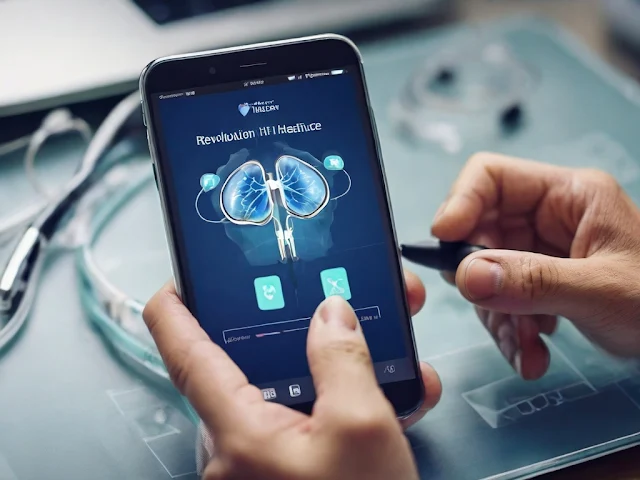Introduction to Digital Health
Digital health, also known as eHealth or health technology, refers to the use of digital technologies, such as computers, smartphones, and the internet, to improve healthcare delivery, patient outcomes, and public health. It encompasses a wide range of applications and services, from wearable devices and telemedicine platforms to health tracking apps and electronic health records.
The Evolution of Digital Health Technologies
Wearable Health Devices
Wearable health devices, such as smartwatches, fitness trackers, and medical sensors, have become increasingly popular in recent years. These devices can monitor various health metrics, including heart rate, activity levels, sleep patterns, and blood glucose levels, providing users with valuable insights into their health status and behavior.
Telemedicine
Telemedicine enables healthcare providers to deliver medical services remotely, using telecommunications technology. Through video consultations, messaging apps, and other digital platforms, patients can access medical advice, diagnoses, and treatment plans from the comfort of their homes, reducing the need for in-person visits to healthcare facilities.
Health Tracking Apps
Health tracking apps allow users to monitor and manage their health and wellness goals, track symptoms, medications, and appointments, and access educational resources and support networks. These apps cover a wide range of functions, from fitness and nutrition tracking to chronic disease management and mental health support.
Advantages of Digital Health
Improved Access to Healthcare
Digital health technologies have the potential to improve access to healthcare services, particularly for individuals living in remote or underserved areas. Telemedicine and mobile health apps enable patients to consult with healthcare providers, access medical information, and receive ongoing support and monitoring, regardless of their location.
Personalized Medicine
Digital health tools and technologies enable personalized approaches to medicine, tailoring treatment plans and interventions to individual patients' needs, preferences, and genetic profiles. Through genetic testing, data analytics, and predictive modeling, healthcare providers can identify risk factors, anticipate disease progression, and optimize treatment outcomes.
Remote Patient Monitoring
Remote patient monitoring allows healthcare providers to track patients' health status and vital signs outside of traditional healthcare settings, such as hospitals and clinics. By collecting and analyzing real-time data from wearable devices and home monitoring equipment, providers can detect changes in patients' conditions early, intervene promptly, and prevent complications.
Challenges and Concerns
Data Privacy and Security
One of the main concerns surrounding digital health is the privacy and security of patient data. With the increasing collection and sharing of health information online, there is a risk of unauthorized access, data breaches, and misuse of sensitive personal information. Robust security measures, encryption protocols, and compliance with data protection regulations are essential to safeguarding patient privacy.
Digital Divide
The digital divide refers to the gap between those who have access to digital technologies and the internet and those who do not. Inequities in access to technology and digital literacy skills can exacerbate health disparities, limiting individuals' ability to benefit from digital health innovations. Efforts to bridge the digital divide, such as improving internet infrastructure, providing digital literacy training, and ensuring affordability and accessibility of digital devices, are crucial for ensuring equitable access to healthcare.
Regulation and Compliance
As digital health technologies continue to evolve and proliferate, regulatory frameworks and standards for data privacy, security, and quality assurance are essential to protect patients and ensure the safety and efficacy of digital health products and services. Regulatory bodies, such as the Food and Drug Administration (FDA) and the Health Insurance Portability and Accountability Act (HIPAA), play a vital role in establishing guidelines and enforcing compliance with legal and ethical standards.
Future Outlook
The future of digital health holds great promise for transforming healthcare delivery, improving patient outcomes, and promoting population health. Advancements in artificial intelligence, machine learning, and big data analytics are expected to drive innovation in predictive modeling, precision medicine, and personalized healthcare. Additionally, the integration of digital health technologies into existing healthcare systems and workflows will be crucial for realizing the full potential of digital health in addressing the evolving needs and challenges of healthcare delivery.
Conclusion
In conclusion, digital health is revolutionizing the healthcare industry, offering innovative solutions to improve access to care, personalize medicine, and empower patients to take control of their health and well-being. While digital health holds tremendous potential for transforming healthcare delivery and improving patient outcomes, it also presents challenges related to data privacy, digital divide, and regulatory compliance. By addressing these challenges and harnessing the power of digital technologies, we can create a future where healthcare is more accessible, efficient, and patient-centered.

